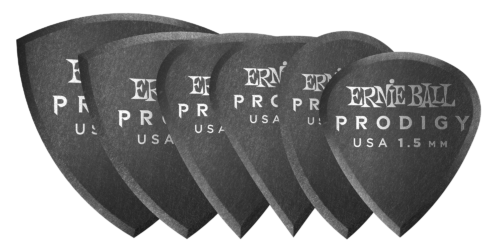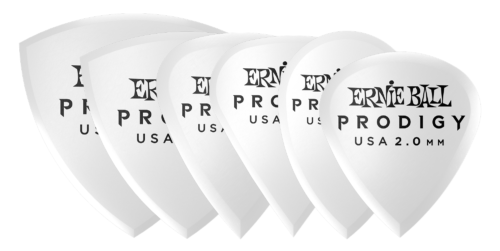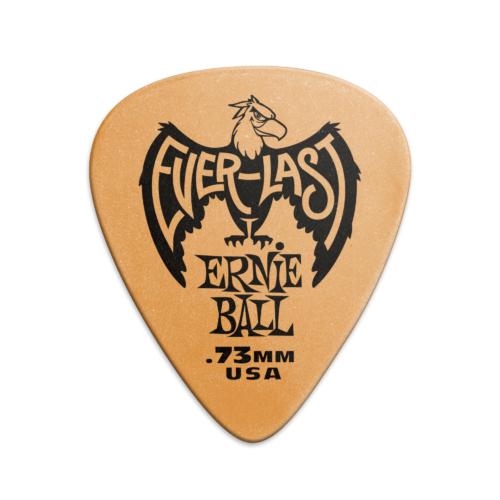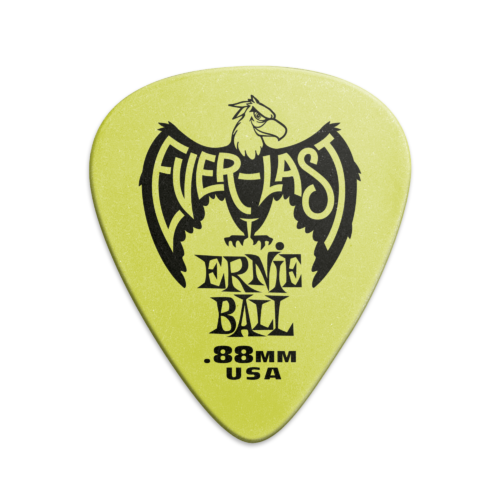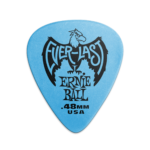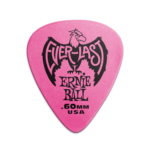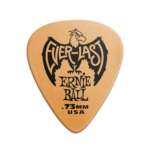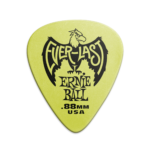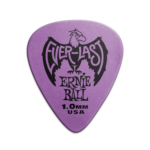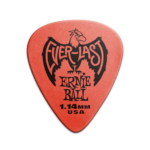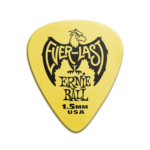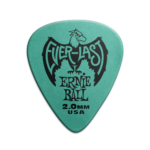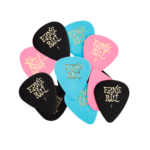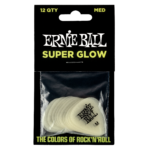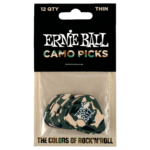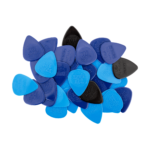It’s probably the smallest piece of guitar gear available. However, the humble guitar pick has more influence on your technique and sound than you may think. Whatever your needs, we have the pick to match. Let’s take you through some of the important things you need to consider when finding your perfect Ernie Ball pick (or plectrum).
The engineered angle of attack.

Designed for high performance, high accuracy, and high speed, the Prodigy pick is the only Ernie Ball pick with a beveled edge and sharp point, giving you ultimate control. For more information read our 2018 Prodigy pick launch blog.


Best picks for speed, shredding, and alternate picking
For 2019, we’ve expanded our range to have more shapes and sizes. Whether you need something larger to grip, something smaller for hybrid picking, or more playing surface area for tonal exploration — we’ve got you covered. If you’re looking to experiment we also have the 1.5mm Mulitpack and 2.0mm Multipack available.
If you’re after the ultimate guitar playing pick take a look at the Ernie Ball Prodigy pick.
Hear what others have to say about our Prodigy picks
Watch our friends Matt The Riff Master and Acoustic Life took a look at the Prodigy picks.
Best pick for a beginner guitar player
If you’re in the early stages of your guitar playing or you’re not sure where to start with picks, take a look at our .73mm Everlast or .88mm Everlast picks.
Thickness wise they’d be classed as “medium”. Which means if you’re finding it too hard, or too floppy, you have a better idea of how much to move up or down in thickness. They come in the traditional and most popular pick shape and are made from a hardwearing material (called Delrin) for a more secure, non-slip surface.
Guitar pick thickness guide
With our Everlast picks, you can choose from eight thicknesses, from our thinnest .48mm, up to our heaviest 2.0mm.
Thin picks (.48mm – .60mm) are great for acoustic, 12 string and delicate playing. You’ll find that these give a more trebly tone as they glide across the strings, but the thinner picks are not great for control because of the amount they bend and flex.
Medium picks (.73mm – .88mm) are probably the most common thickness. They’re a good compromise between the flexibility needed for strumming and rhythm, and the stiffness needed for clear lead work. Great high to mid-range tones without being too boomy.
Heavy picks (1.0mm – 1.14mm), on the other hand, are great for solos, heavy rock, and metal. They give great control with your attack on the strings. And because they’re thicker, the harder you hit the strings, the more harmonics the strings will give out.
Extra heavy picks (1.5mm – 2.0mm) give a warmer and more mellow sound. Great for Jazz or players who prefer a deeper and darker tone. If you’re a fast or metal player, you may like these due to the amount of control and attack you’ll get.
But this is just a guide. It’s all about what works for you and making sure you have the right tools available. It’s not uncommon to find yourself using different picks for different needs. Going just .14mm thicker could be the difference in nailing that solo.
Other guitar pick options to help practice and performance
Other Ernie Ball picks are available in alternative materials.
Our Cellulose picks are smoother than Everlast. Cellulose is a type of plastic that is more brittle and may give that little bit more bite and tonal snap. However, they’ll wear quicker than the Delrin made Everlast.
If you find yourself needing extra help holding on to the pick due to sweaty fingertips, check out our range of Nylon picks. These are also typically softer, but because they are molded plastic they include raised surface textures, making the pick significantly easier to hold on to and maintain a consistent grip.
If you’re after something more unique, you can also get Glow In The Dark (for those dimly lit stages), Camouflage or Perloid picks.
Bottom line: experiment. See if you notice a difference. Let us know why you chose your picks in the comments below.
Looking to take your skills to the next level, or you’re in need of a pick that helps increase speed and accuracy? Check out of the Ernie Ball Prodigy pick.
What guitar pick should you buy?
Let’s tackle this number one question head-on. With all things guitar related it’s personal preference on what works for you. There aren’t any rules, so experiment. The number one thing the guitar pick has to be is comfortable. If it doesn’t feel right between your fingers, it won’t do what it is you need it to do. That’s the whole point of a plectrum: to make what you’re trying to play easier.
If you want to read more about the differences in our picks take a looks at our previous Picks Buying Guide blog where we go into a little more detail about the thickness, material, and comparisons. Or take a look at our full range of Ernie Ball picks.




